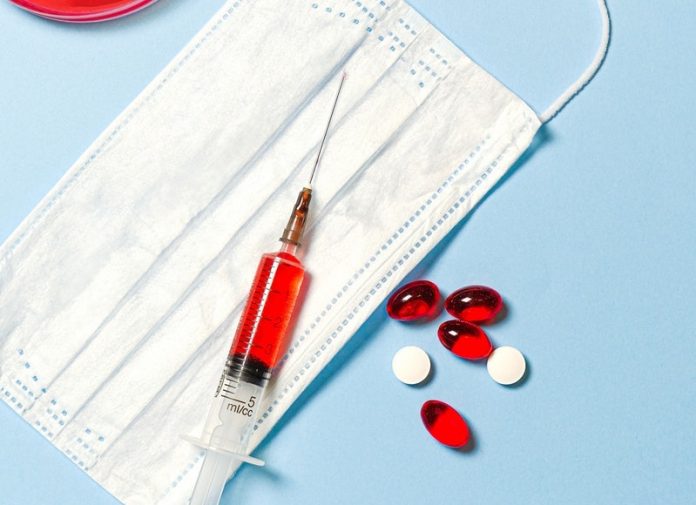
In a new study, researchers found that sitagliptin, a drug to lower blood sugar in type 2 diabetes, also improves survival in diabetic patients with COVID-19.
Patients given sitagliptin in addition to insulin had a death rate of 18% as compared with 37% in patients receiving only insulin.
The researchers think it’s reasonable to try sitagliptin if a patient is admitted to the hospital with type 2 diabetes and COVID-19.
Based on sitagliptin’s mechanism of action, they believe it could also work in non-diabetic patients with COVID.
The research was conducted by a team at Boston Children’s Hospital and elsewhere.
Sitagliptin, an oral drug, is one of a class of drugs known as DPP-4 inhibitors, prescribed to an estimated 15% to 20% of patients with type 2 diabetes.
It was approved by the FDA in 2006 and lowers blood sugar by blocking the receptor for the enzyme DPP-4 (also known as CD26), causing an increase in insulin production.
But recent studies suggest that DPP-4 may also help SARS-CoV-2—the coronavirus that causes COVID-19—get into respiratory cells.
In addition to blocking DPP-4, sitagliptin has anti-inflammatory effects, reducing the production of the cytokine IL-6, which is known to contribute to the “cytokine storm” that can cause organ complications in COVID-19.
Sitagliptin may also have a third benefit: keeping blood sugar down. Previous studies have shown that diabetic patients with worse glycemic control have worse COVID-19 outcomes.
The current study enrolled 338 patients with type 2 diabetes and COVID-19 pneumonia who were admitted to seven academic hospitals in northern Italy.
Of these, 169 were given only IV insulin for their type 2 diabetes (the standard of care) and served as controls; the other 169 received sitagliptin in addition to IV insulin.
The team found that compared with the controls, patients receiving sitagliptin had reduced mortality (18% vs. 37%) and were more likely to improve clinically.
Specifically, patients treated with sitagliptin were: less likely to need mechanical ventilation; less likely to need intensive care; more likely to have at least a drop of disease severity; and less likely to have a worsening of clinical outcomes.
The team says they will confirm these findings in a new study. The new trial will enroll patients in Italy and elsewhere in Europe.
One author of the study is Paolo Fiorina, MD, Ph.D.
The study is published in Diabetes Care.
Copyright © 2020 Knowridge Science Report. All rights reserved.



